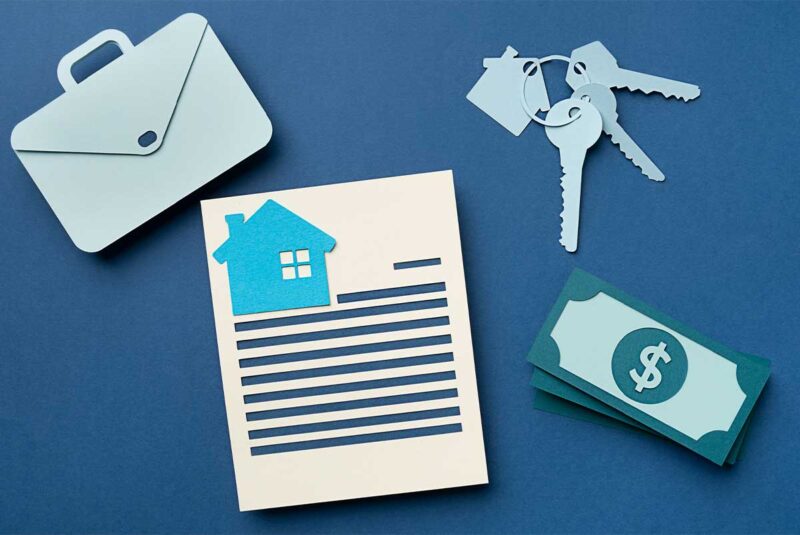Ready To Buy a Home?
Get Approved to Buy a Home
Rocket Mortgage® lets you get to house hunting sooner.
When you buy a home, one of the biggest X-factors can be your property taxes because they can change from year to year. And for as long as you own the home, you’ll be responsible for paying your property taxes.
Understanding property taxes is an important part of the home buying process. Property taxes affect your monthly mortgage payment and play a critical role in funding essential services in your community.
Learn how property taxes work, who decides how much you’ll need to pay – and best of all – how you could potentially pay less.
What Do Property Taxes Pay For?
Your property taxes help pay for services that keep your neighborhood running, including schools, fire and police departments, libraries, local parks and recreation and sanitation.
Let’s say you find two similar homes on opposite sides of a town or county line. While the price of the homes might be roughly the same, there may be a difference in property taxes.
We get why it would be tempting to want to buy the home with the lower property taxes, but it’s important to consider what you’d potentially be getting in return with those higher taxes.
If you have kids, it may make sense to pay more in property taxes so you can live in a good school district. Or, if you’re an outdoor enthusiast, you may decide to embrace your inner Leslie Knope and live in an area with a thriving parks and rec department.
How Do You Calculate Your Property Taxes?
Property taxes are calculated using the assessed value of your home. The assessed value is the estimated value of the home for real estate tax purposes only.
Your property taxes equal the assessed value of your home multiplied by your local effective tax rate. That means the amount you’ll pay can vary based on where you live and the value of your home.
Let’s say you live in a home valued at $250,000.
- If you live in Alabama, with an effective property tax rate of 0.42%, you’d pay $1,050 in property taxes each year or about $87 a month.[1]
- If you live in New Jersey, with an effective property tax rate of 2.76%, you’d pay $6,900 in property taxes each year or about $575 a month.[2]
That’s a big difference! But before you move from Trenton to Mobile, it’s important to understand how these rates are determined.
How is the value of your home assessed?
As a rule, each county is broken down into appraisal districts (aka taxing districts). The effective tax rate for each district is determined by a tax assessor every 1 – 5 years. Every county and area has its own system, but some of the most commonly used criteria include:
- The value of comparable properties in your area
- The location and condition of the property
- The value of home improvements you’ve made
- Overall market conditions
- The amount of depreciation (think: loss of value over time)
- Whether the property is a rental or owner occupied
- How much it would cost to replace your property
- What kind of income you could make if you rented out the property
Different areas may only tax you based on a percentage of the assessed value of your home. And there are states, counties, cities and communities that may offer property tax exemptions (which we’ll go over later) that can also lower the assessed value of your home.
How are property tax rates decided?
Property taxes are based on something called the mill rate or millage. This number determines how much property tax you owe per $1,000 of assessed home value.
Each state, county, city and town or community sets a mill rate for their area. The mill rates are added together to determine the property tax rate for your tax district or tax area (aka the mill levy).
Let’s say your state has a mill rate of 9 (0.9%). Your county has a mill rate of 5 (0.5%). And your tax district has a mill rate of 6 (0.6%).
That would bring your total mill levy (or tax rate) to 20 (2%).
So, for every $1,000 of assessed home value, you would owe $20 in property taxes. If your home’s assessed value is $250,000, your property tax bill would be $5,000 or $416.66 a month.
Check out your state, county or city department of revenue to learn about the property taxes in your area.
Are You Eligible for a Property Tax Exemption?
Homestead exemption
If your home is your primary residence, many states let you protect a certain amount of your home’s actual value from property taxes. This exemption can either be a flat rate or a percentage of your home’s assessed value.
You may also be eligible for a larger exemption if you own your home with a spouse or other co-owner.
Senior exemption
Many states provide tax exemptions for homeowners once they’ve reached a certain age. The qualifying age can vary from state to state and region to region and come with different income or residency requirements.
Some states may not allow older adults a complete tax exemption. Instead, they may allow them to defer their property tax payments until they sell their home.
Other property tax exemptions
Some states allow for unique property tax exemptions, including:
- Disability exemptions
- Veteran and first responder exemptions (including surviving spouses)
- Lower-income homeowner exemptions
- Home energy efficiency exemptions
How Are Your Property Taxes Collected?
Your property tax payments are usually rolled into your monthly mortgage payment and collected by your mortgage loan servicer.
Your mortgage loan servicer estimates how much you’ll owe in property taxes for the year and breaks it out into 12 monthly payments. Your payments are deposited in an escrow account and paid out once or twice a year, depending on your local tax authority.
What happens next depends on the remaining balance in your escrow account. Lenders are allowed to keep a certain amount of money in escrow to cover any shortages if you fail to make a payment.
If there’s money left over after your property taxes are paid and other escrow account minimums are met, the lender will send you a refund check and adjust your monthly payment to match the anticipated tax amount.
If your escrow account falls short, your lender may increase your monthly payment to help make up the difference.
You may be able to opt out of paying your property taxes through escrow. Typically, lenders will only allow that if you have more than 20% equity in your home. (Home equity is the difference between what you owe on your mortgage and the fair market value of your home).
Unless you want to take on the added responsibility of setting aside money each month to cover your property taxes, you’re probably better off letting your lender or mortgage loan servicer do the setting aside for you.
Can You Appeal Your Property Taxes if You Want To Pay Less?
If you’re not happy with your property tax bill, you can challenge it – but it won’t be easy.
First step, review your tax bill. See what the local rates are for your tax district and note the assessed value of your home.
Because the tax rate is assessed based on your tax district, you won’t be able to argue that your property tax rate is too high. But you can argue that the assessor overvalued your home.
To convincingly make that argument, you’ll need to check out comparable properties in your area to determine how your home compares. You can also get a home appraisal done. But consider yourself warned, an appraisal can cost as little as $600 or as much as $2,000.
Once you’ve got your numbers and paperwork in order, you’ll move on to the next step. Contact your local assessor and ask about their appeals process. If appealing to the assessor doesn’t work, you might be able to take your appeal to the local appraisal review board.
Warning: This process can be time-consuming, and it may involve fees and other expenses. Weigh the potential costs and benefits of this approach before you start the appeals process.
Can You Write Off Your Property Taxes?
Before 2018, you could take a full deduction for every dollar you spent on your property taxes. That meant that you could take the total amount you paid and deduct it from your income on your tax return (which lowered the amount of income you’d get taxed on).
After the Tax Cuts and Jobs Act (TCJA) was passed by Congress, the amount you could deduct in property taxes was capped at $10,000.[3]
Let’s say you’re a homeowner in New Jersey and you own a $1 million home. You could easily pay more than $27,600 each year in property taxes.
Before 2018, you could deduct the full $27,600 from your taxes. After 2018, you could only deduct $10,000.
What if I Don’t Pay My Property Taxes?
If you don’t pay your property tax bill, your local tax authority will put a tax lien (aka a legal claim) on your home.
If your property tax bill remains unpaid, your state or local government tax authority can put a tax levy on your home to seize your property and even sell your home to satisfy the debt.
Even if they don’t take your home, they can pass the debt to private tax collectors (who aren’t well known for their politeness or patience).
Property Taxes and Your Community
Property taxes are what you pay to live in your community. They aren’t federal taxes. You don’t pay them when you file your federal tax return. Your property taxes are determined at a local level and should be factored into your monthly budget to ensure you can cover them.
That’s why it’s important to understand your property taxes and know the people and agencies responsible for assessing, collecting and managing them.
Take the first step toward buying a home.
Get approved. See what you qualify for. Start house hunting.
The Short Version
- Property taxes pay for services in your community, like schools, police and fire departments, libraries and more
- Your property taxes are based on the assessed value of your property and your local tax rate
- Depending on where you live and other eligibility criteria, you may qualify for a property tax exemption
Alabama Department of Revenue. “Property Tax Incentives.” Retrieved November 2021 from https://revenue.alabama.gov/tax-incentives/about/property-tax-incentives/
State of New Jersey Department of Community Affairs. “Property Tax Information.” Retrieved November 2021 from https://www.nj.gov/dca/divisions/dlgs/resources/property_tax.html
Internal Revenue Service. “Publication 5307 (Rev. 6-2020).” Retrieved November 2021 from https://www.irs.gov/pub/irs-pdf/p5307.pdf




